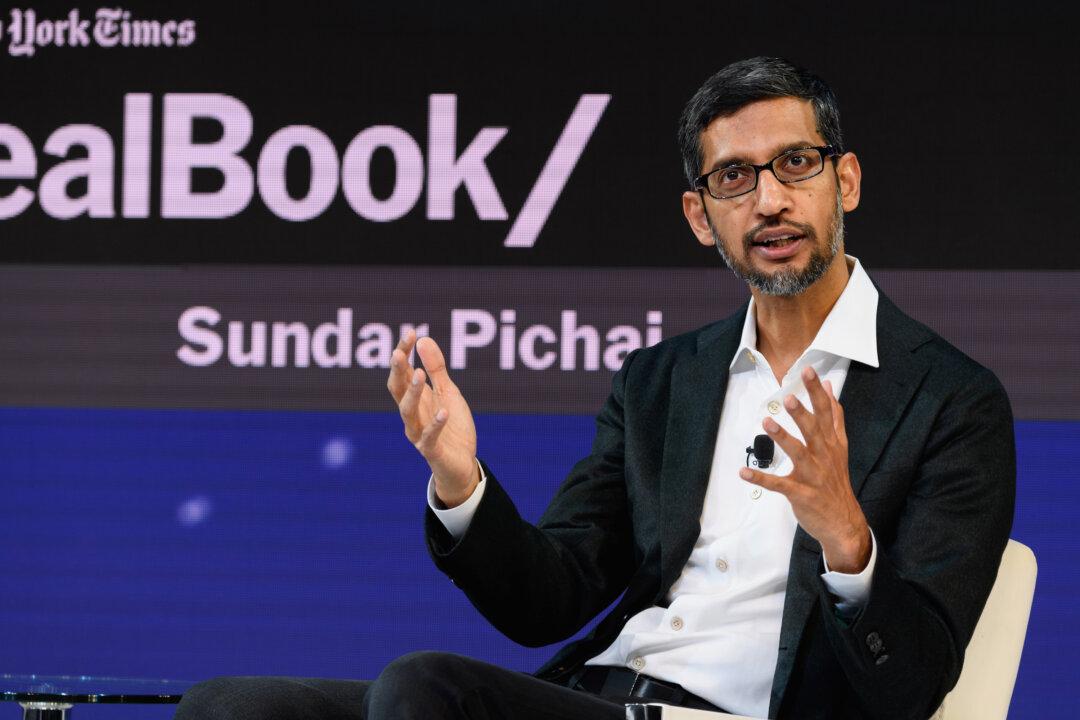Sundar Pichai, chief executive of Google, will testify to Congress on the company’s practices of “filtering” data.
“The hearing will examine potential bias and the need for greater transparency regarding the filtering practices,” the House Judiciary Committee stated in a Nov. 28 release, scheduling the hearing on Dec. 5.





